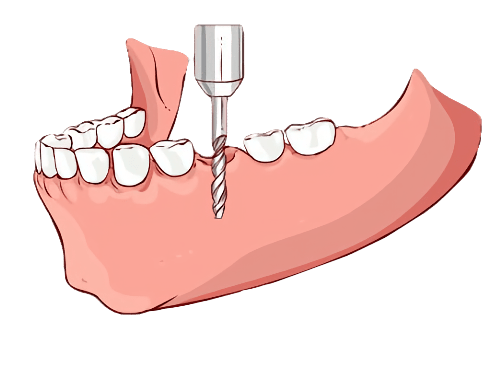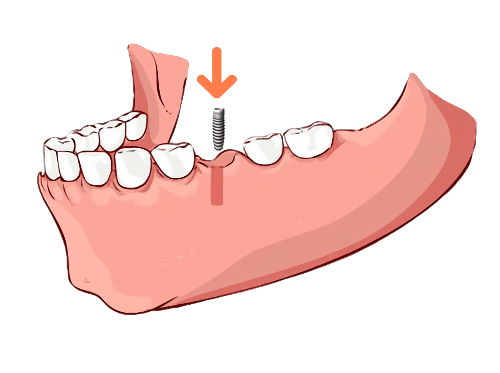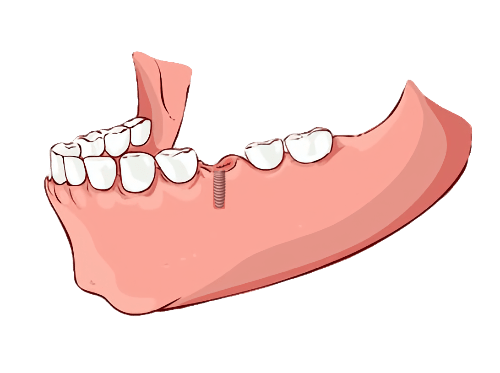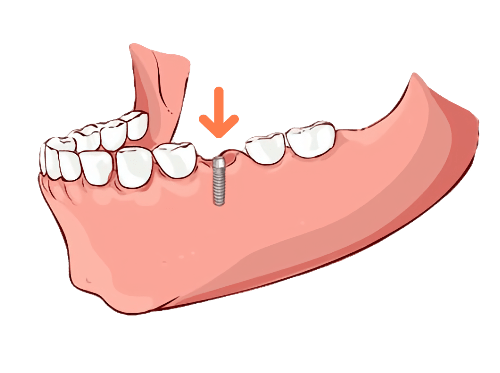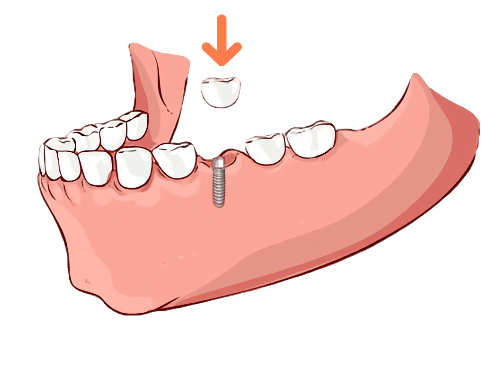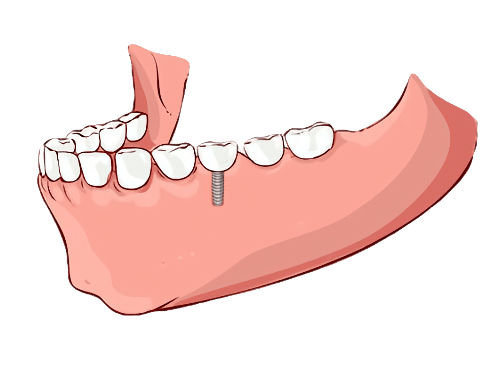Side-effects
Side-effects are the unwanted but mostly temporary affects you may get after having the procedure. You may have some swelling and discomfort around the implant area. If so, you can take an over-thecounter painkiller such as paracetamol or ibuprofen. Always read the patient information leaflet that comes with your medicine and if you have any questions, ask your pharmacist for advice.
Complications
As with every procedure, there are some risks associated with dental implant surgery. Complications are when problems occur during or after the procedure. The possible complications of any operation include an unexpected reaction to the anaesthetic, or excessive bleeding.
The nerve that runs to your face has branches that are in your lower jaw. These supply the feeling to your lower jaw, lower teeth and gums and your bottom lip. If the nerves are damaged by the implant, you may feel temporary or sometimes permanent tingling or numbness. It may also be painful. X-rays and CT scans help your dentist to see the position of the nerves in your jawbone to minimise this risk.
Occasionally, the jawbone doesn't fuse with the implant properly and the implant can become loose. This isn't usually painful, but the implant won't be able to support false teeth. You may need to have another implant fitted. Your dentist will ask you to attend regular check-ups to make sure your implants are still secure.
